An American expat in Helsinki: A fellow happy European transplant
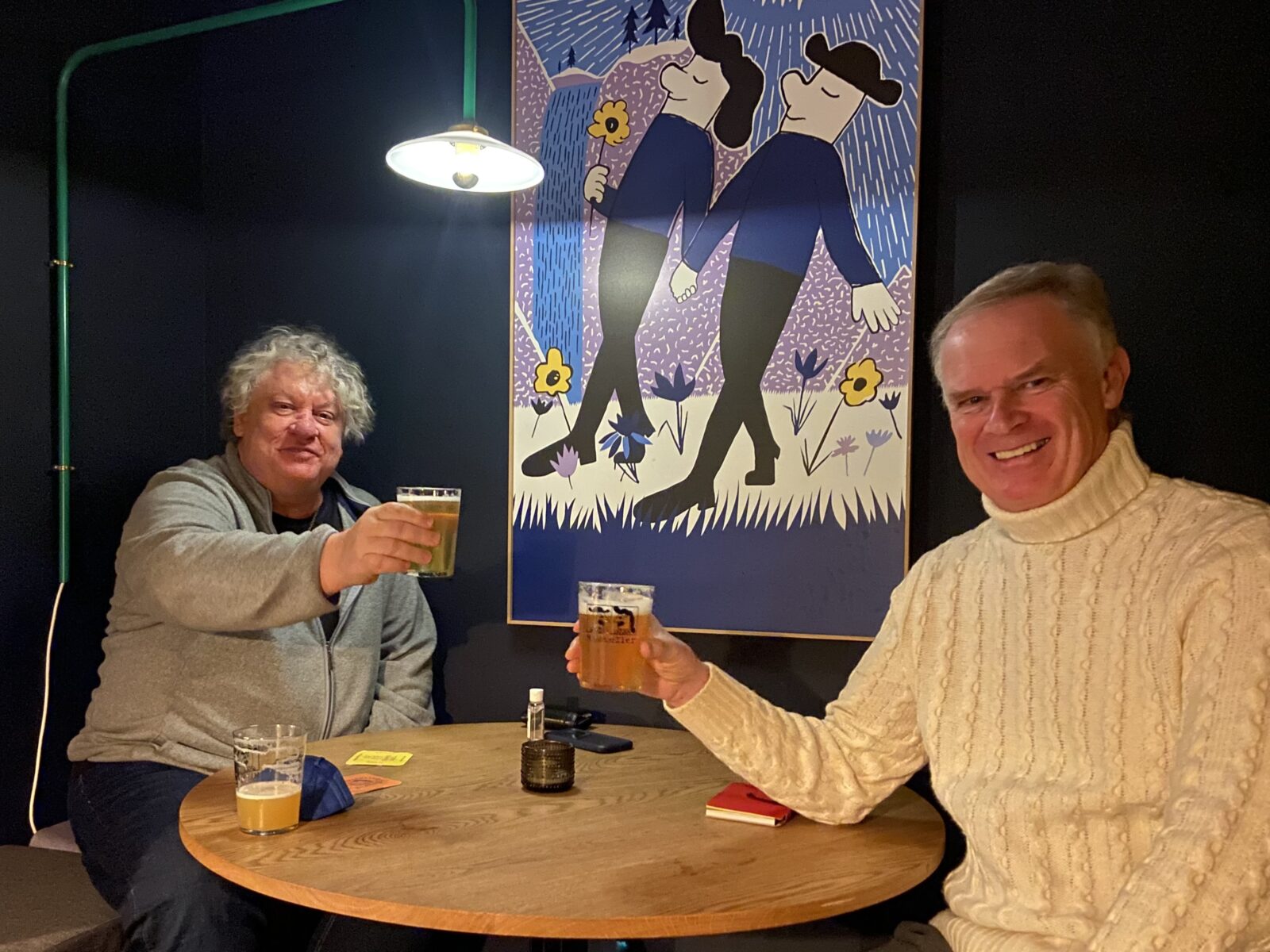 Michael Hunt and I at Mikkeller Bar in Helsinki. Photo by Marina Pascucci
Michael Hunt and I at Mikkeller Bar in Helsinki. Photo by Marina Pascucci
(This is the second of a three-blog series on Finland. Today: A fellow American expat in Helsinki.)
HELSINKI – They say everyone has an unknown twin somewhere on the planet. I met mine here in dark, cold Finland just before Christmas.
Michael Hunt and I don’t look like twins. We don’t sound like twins. But compare our life stories and we are looking at each other in the mirror. Let’s see. We both:
- Were sportswriters in the U.S. for 40 years.
- Worked at major metro dailies from 1990-2014, starting off covering college sports then moving onto the pros.
- Got burned out and quit in 2014.
- Retired to European countries.
- Fell in love with local women.
- Are freelance journalists.
- Like to drink. (See Item 1 above.)
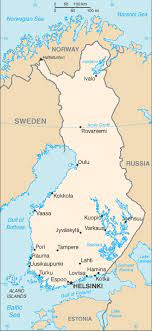
But here’s the biggest similarity of all: Neither the Russian army nor Roman gladiators could make us leave our adopted nations.
Hunt, who’s only one year younger than me at 64, is an American expat in Helsinki where he has lived since 2017. Like myself, he did a full-body nosedive into the culture. He learned some of the language and not only appreciates Finland’s socialist democracy but embraces it. All you Republicans who equate socialism with the demise of civilization, please read on.
You may learn why Finland sounds like planet Earth’s ideal nation.
“There’s a feeling of overwhelming serenity here,” Michael said. “I felt it immediately.”
The local bar
We met at Mikkeller Bar, a cozy, neighborhood joint selling tasty Finnish craft beer for 6-12 euros, depending on the size, and more moderately priced than the more larcenous Nordic nations. Marina and I had arrived the night before and spent a fabulous day touring the Finnish capital. Helsinki is like this fairy tale city where everything is perfect and in place, so orderly you don’t even dare cross on a red light. Traffic is minimal. So is poverty. Homelessness is non-existent. We didn’t see so much as a cigarette butt in the streets. You think it rains pixie dust.
Even the snowmen seemed to smile.

Helsinki, with a population of 630,000, is cheaper than Oslo, calmer than Reykjavik and safer than Stockholm.
We strolled through its quaint Christmas market on the harbor, sampling local jelly candies and jams and wondering if we could ever use reindeer-wool gloves in Rome. We had delicious salmon soup, a Finnish diet staple, in Market Hall, since 1889 a Helsinki landmark for local foods and hot coffee on cold days. It had hardly changed since my only other visit to Finland in 1978.

We walked up the Esplanade, Helsinki’s three-block downtown green space, lined this month with bushes covered in white Christmas lights and bright, illuminated wooden reindeer. It was a relatively mild 37 degrees with a cold breeze coming off the Gulf of Finland. Finns look attractive even in stocking caps.
Over a couple pints of a Salama dark IPA, Michael and I exchanged stories. Michael is big and burly with a big mop of curly hair. He’s a great storyteller, as important to our craft as a laptop and cynicism.
An American expat in Helsinki’s story
We had never met despite covering the same events over the years. However, we both got burned out on sports writing about the same time in 2014. I retired from The Denver Post on Jan. 5 and moved directly to Rome five days later; he left the Milwaukee Journal Dec. 1 to teach news writing at South Carolina, his alma mater.
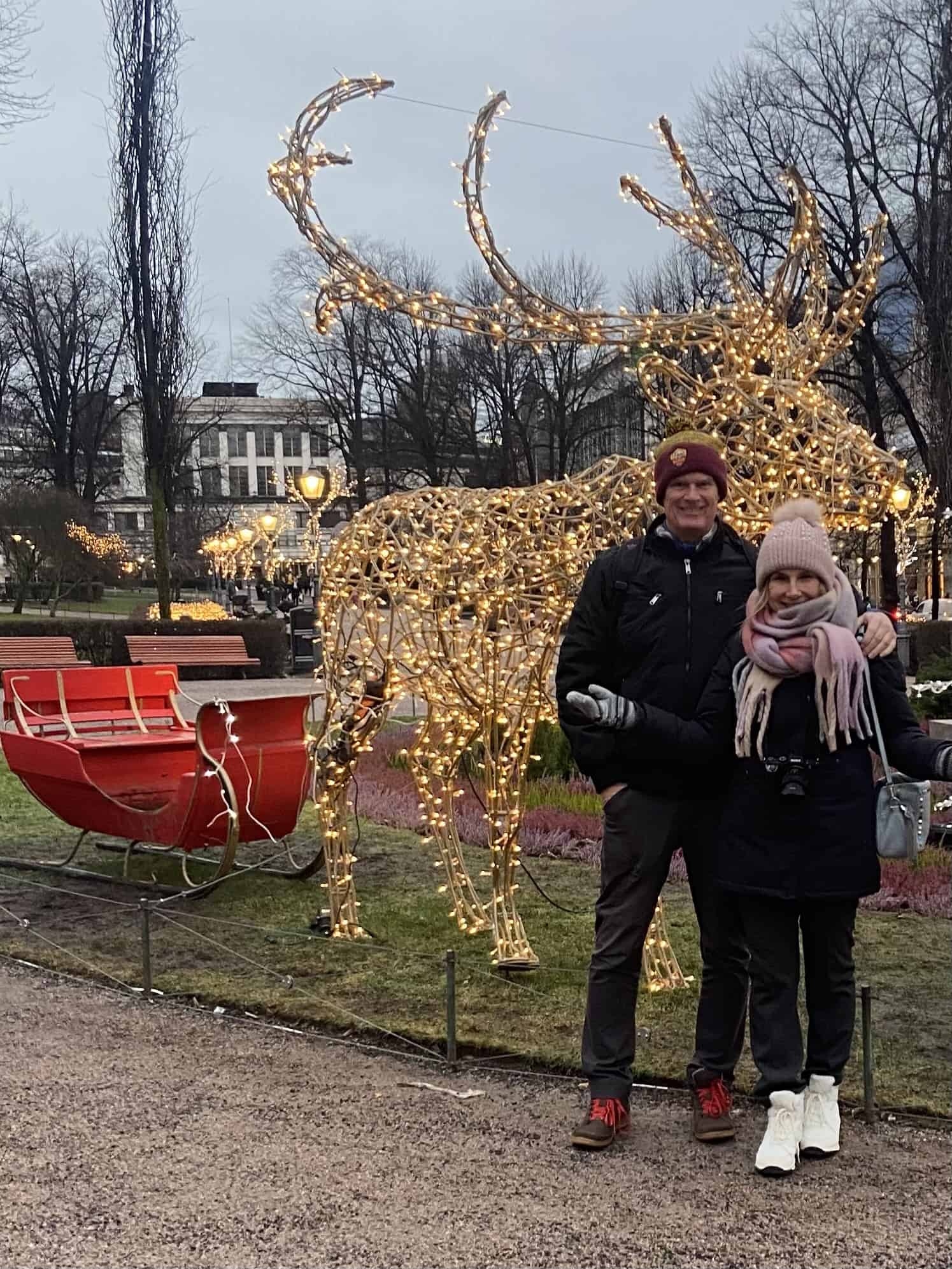
He later fulfilled a long-time dream of living in New York and getting his masters by studying journalism at Columbia where he met his girlfriend, Nina, who also attended.
Her student visa ran out in 2016 and she got a job in Helsinki. She invited him back for Christmas.
“I had such a good feeling,” he said with a slight touch of South Carolina twang. “I remember the Finnair flight. As soon as the wheels touched down in Helsinki, I said, I feel I’m at home. I’ve never had one bad feeling, no regret, no buyer’s response.
“I loved it from the minute I got here.”
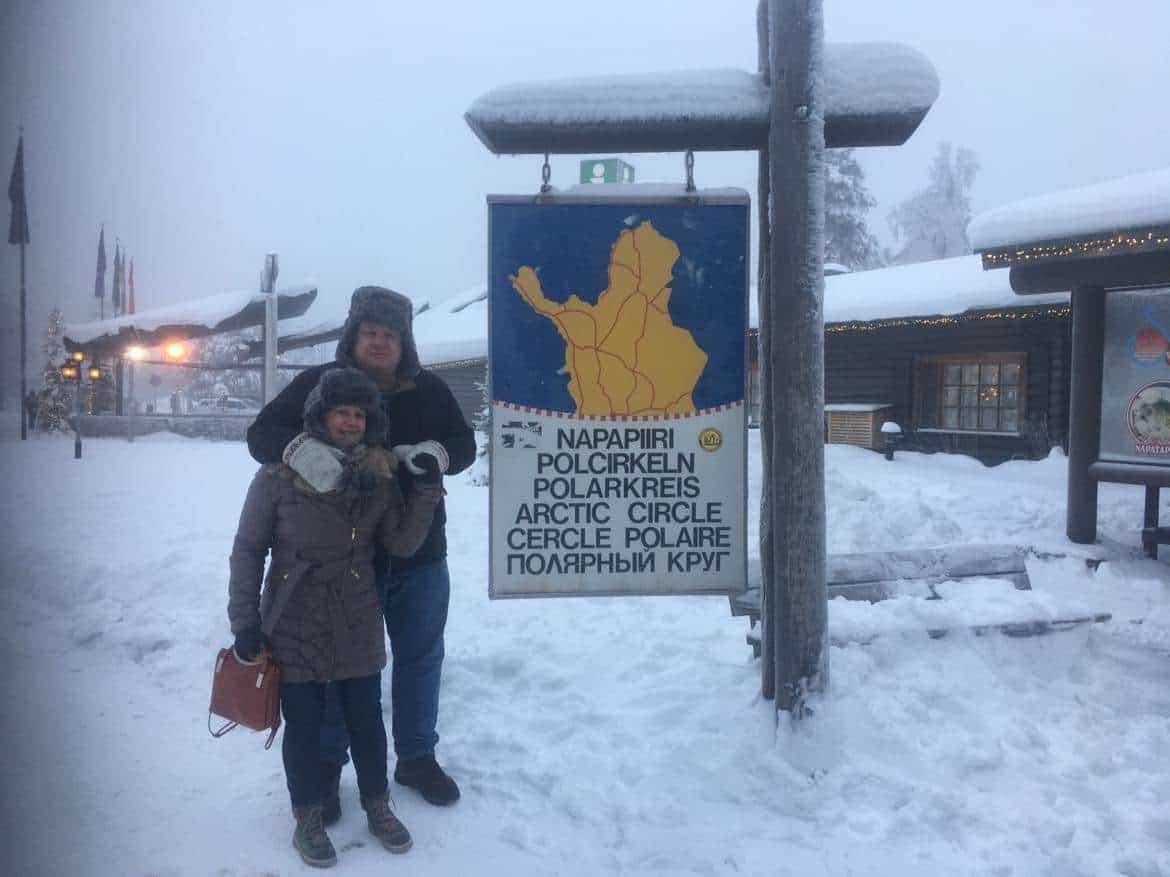
You can see why. However, it helps to be liberal. You know, those people who think about other things besides themselves. People who aren’t afraid of adventure and getting out of their comfort zone to accept – no, adopt – a different culture.
Finland is like Santa. It has so much to like. For the fourth straight year, the United Nations Sustainable Development Solutions Network named Finland the Happiest Country in the World. (The U.S. was 14th.)
Finland for free
College education is free. Health care is practically free. Finland expects to be carbon neutral by 2035. In fact, there are 100,000 fewer cars in Helsinki than a few decades ago and the city emits 28 percent less carbon than in 1990, according to The New York Times.
The people are among the most environmentally conscious in the world. A 2018 survey showed the citizens’ top concerns are climate change and the future for their children. Terrorism and unemployment ranked down there with ski jumping reforms. The citizens last year voted Yes on a measure to plant 100,000 trees, and a project called Satakolkyt had volunteers pick up litter along Helsinki’s 130-kilometer coastline – twice.

A case for Covid
Although it has spiked high recently, Finland has had only 234,041 Covid cases, 94th in the world, and has 42,143 cases per 1 million people, compared to 178,467 of the United Kingdom, 161,108 of the U.S. and 139,666 of France. Finland has had only 1,523 Covid deaths.
On Dec. 21 alone, the U.S. had 2,073.
Finns are soldiers about following rules, “almost Germanic,” Michael said. They trust their government and health officials. Masks are not mandatory in Finland. Yet the only people we saw not wearing masks were tourists.
“Helsinki has the best public school system in the world,” Michael said. “People here are smart as hell. Just about everybody here in Helsinki speaks impeccable English. It’s disincentive for me when I speak Finnish and they’ll start speaking English.”
We’ve texted each other countless messages since becoming fellow expats. We wax poetic about the glories of European life. This is the first time he could expand. I asked him what he liked about Finland.
“Everything,” he said. “Where do we start? It’s clean. It’s safe. It’s modern. Social services, for example, in Helsinki, health care, housing and education are considered basic human rights. The health care system here is superb.”
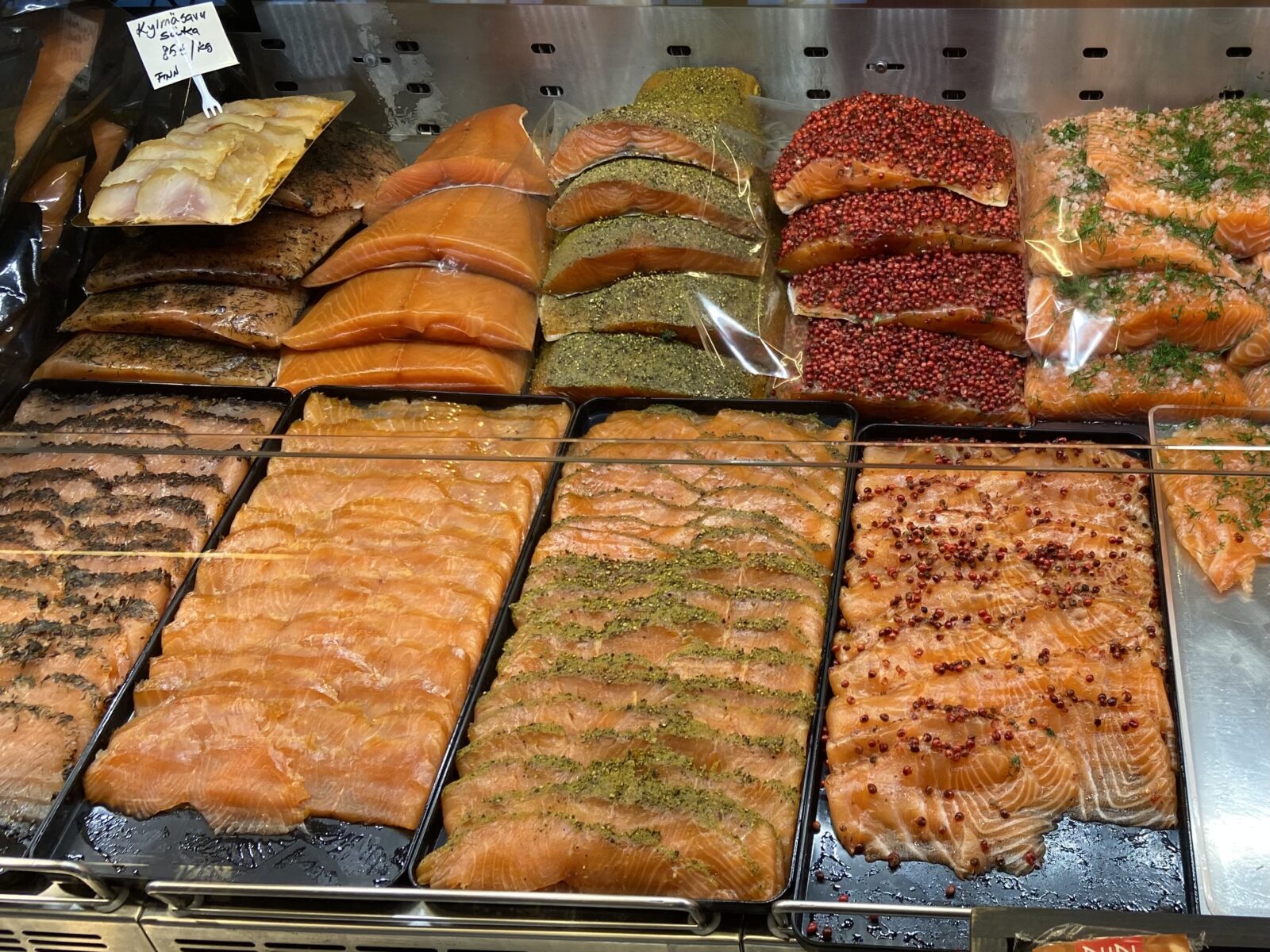
He told me the first time he visited a doctor here, he asked for a prescription for a medicine he took in the U.S. The doctor not only wrote him the prescription but walked him 300 meters to the pharmacy to show how to fill it. The prescription cost?
Two euros.
He read one story about a man who had emergency heart surgery and was in the hospital for a week. Surgery, food, room and board, medication, counseling and recovery cost him 200 euros. In the U.S. the average overnight hotel stay, according to Debt.org, is $11,700.
The economy
Yet, folks, Finland is still a capitalist country. It is not socialist, the phrase that has buried the elections of more than one liberal U.S. politician. It’s the phrase that sends some Americans scurrying into their bomb shelters.
Finland has free enterprise but taxes level the playing field, something many capitalists view as communism light. Michael has a different view.
“It’s awesome,” he said. “It’s beautiful. Most Americans don’t understand the principles of social democracy. They think, ‘People are getting things for free.’ No, they don’t. Everything you get here comes from taxes. There’s a progressive taxation system in Finland. The rich pay their share. People who do really well pay a lot in taxes but they still do really well.”
Taxes in Finland, like in all Nordic countries, are high. For example, someone with a salary of 40,000 euros ($45,200) would pay 39.2 percent in taxes. On 100,000 euros taxes would be 49.4 percent and for 500,000 euros it would be 60.6 percent.

No homeless
With so many taxes paying for social services, only 5.8 percent of Finland’s population in 2018 lived under the poverty line. The U.S. rate in 2019, according to Forbes, was 13.4 percent. You may not be able to afford your own Lear jet in Finland but you don’t see homeless squatting three deep around numerous city blocks as Marina and I saw in San Francisco over Christmas two years ago.
In fact, in five days in Finland, we never saw a homeless person. Not one person asked us for spare change.
“If you find yourself on the street, the city government won’t let you be homeless unless you just want to be,” Michael said. “You don’t see homeless people here. They put you up. They have places. If you have a substance abuse problem, we’re not going to tell you not to drink or not do whatever you do but the first priority is to get you off the street. Get you in a place. Then you can straighten yourself out.
“It’s like the penal system here. It’s rehabilitation. It’s not punishment.”
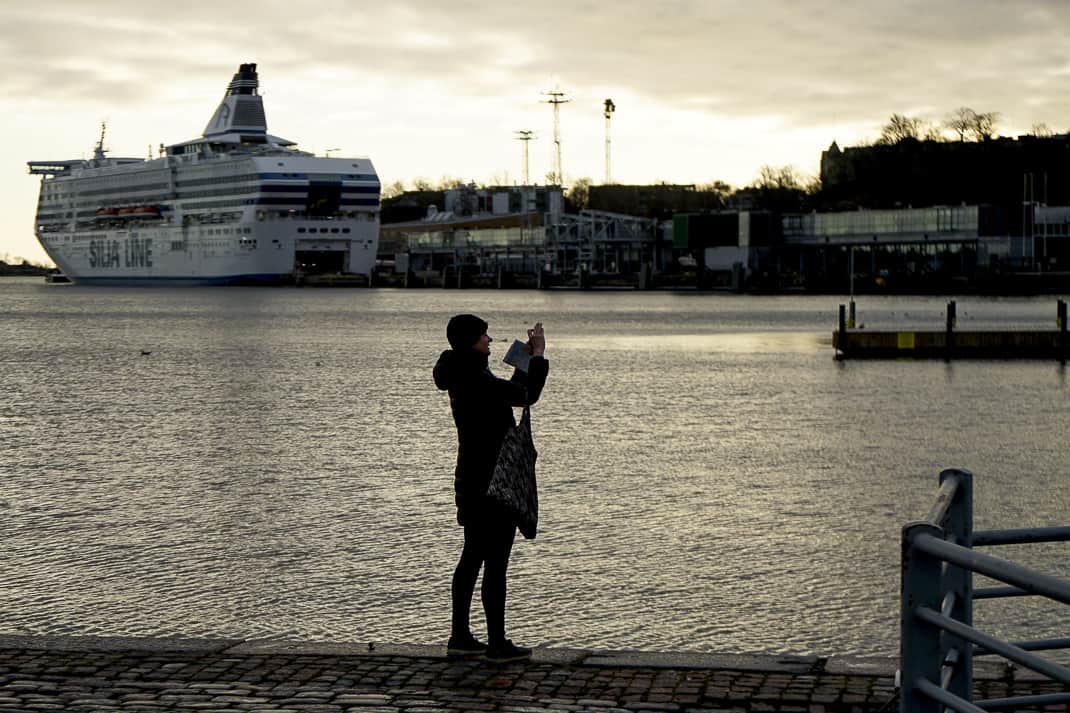
His Southern background
Michael’s soft Southern accent belies his liberal stance. He grew up in Greenville, S.C., in the South, the region with the lowest vaccination rate and education in the country. In my 43 years of international travel, Michael is only the second person from South Carolina I’ve met overseas. The other was on a sailboat in the British Virgin Islands.
“I have family members who think I live in a communist country,” he said. “They don’t want to talk about it much. They think that anything involves social democracy is either communism or a gateway to communism. I’ve tried to explain it but it just doesn’t work.”
I asked what he says.
“It’s nothing like Venezuela,” he said. “It’s nothing like Cuba although there are a lot of good things about Cuba. It’s nothing like the old Soviet Union. You take care of your own. You take care of everybody. Everybody has a chance.
“I don’t drive much. Gasoline is the equivalent to about $8 a gallon here. But I know by paying those high taxes I might help a kid in Jyvaskyla get surgery.”
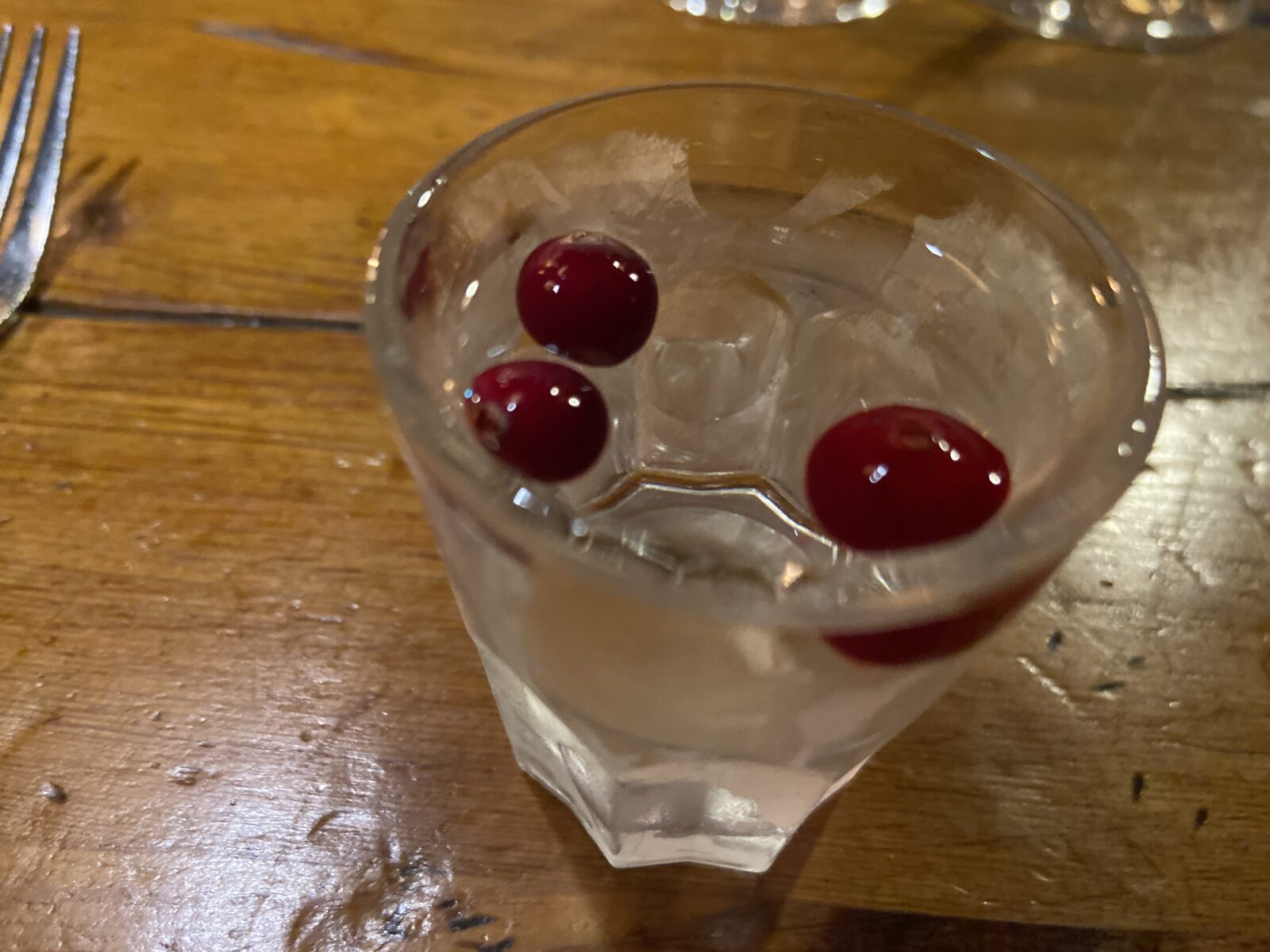
We finished our beers and went around the corner to the No. 1 place in Helsinki to get authentic Finnish cuisine. Lappi Ravintola is where Anthony Bourdain went to eat Finnish. What, you’ve never gone out for Finnish? It’s hearty and heavy and healthy. It’s reindeer, salmon, herring and a fish called Arctic char.
Lappi Ravintola looks like an old hunting lodge with log walls and a brick fireplace and stained wood tables. Its menu sports roast reindeer, fillet of reindeer, sauteed reindeer, reindeer carpaccio, smoked salmon, fried whitebait. I wondered if this is where Santa retired his old rides. I had the sauteed reindeer served on a bed of mashed potatoes and topped with lingonberries which are all over Finland.
But first we toasted our new lives with a Reindeer Tear: a shot of Finland’s Koskenkorva vodka with three lingonberries floating in it.
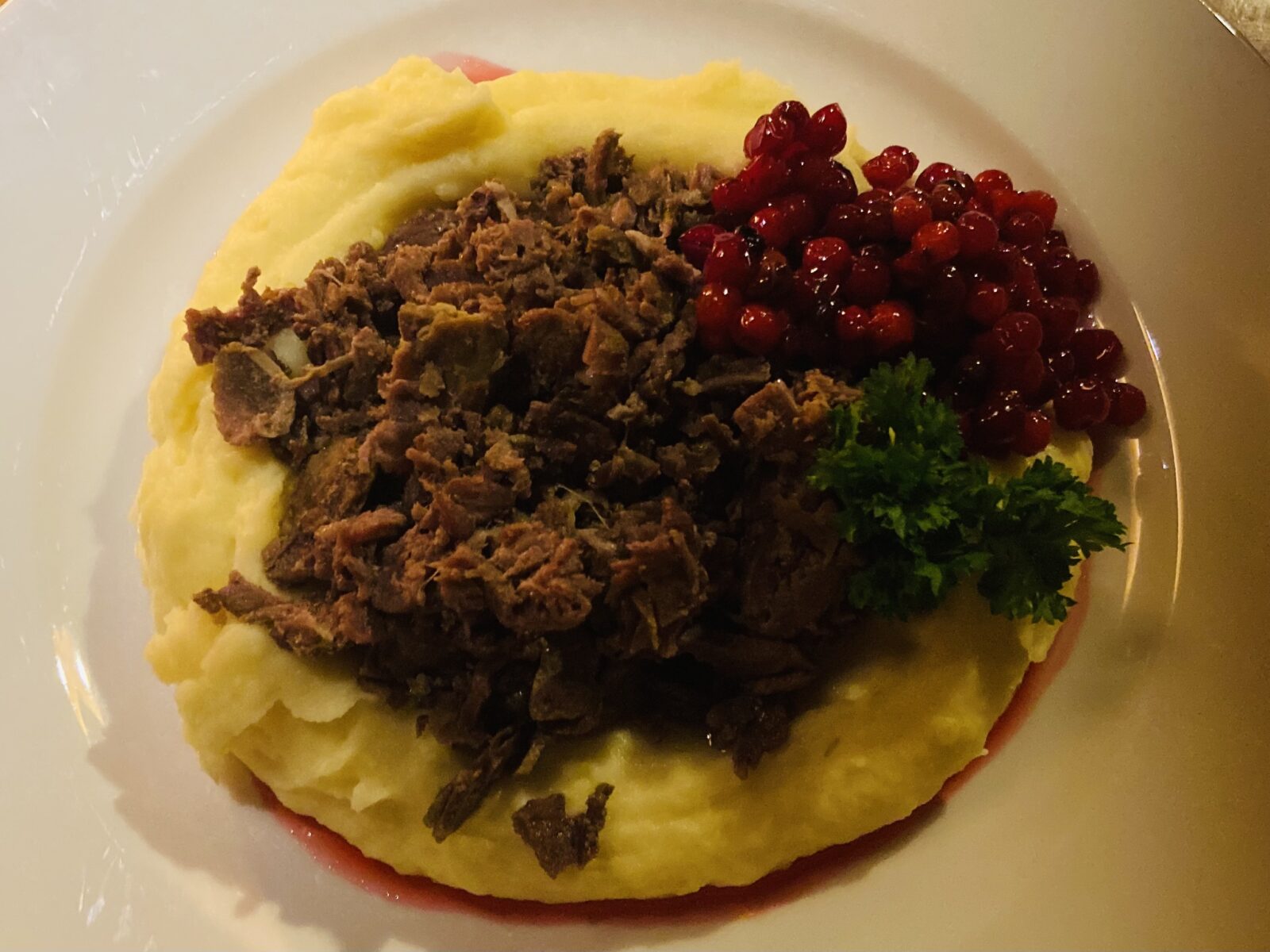
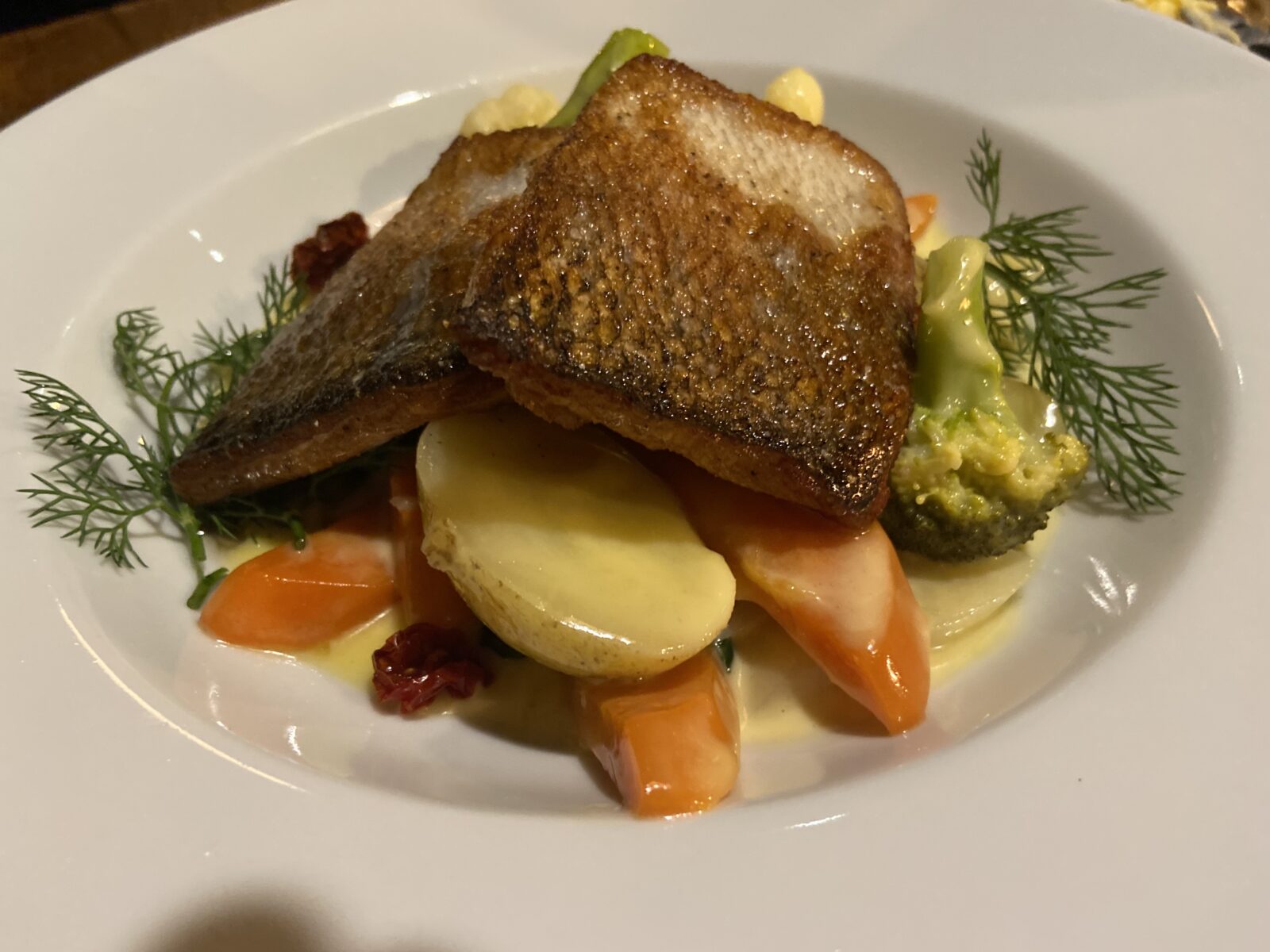
We ordered some Lapin Kulta (Lapland Gold) beer and a couple more Reindeer Tears (Bourdain reportedly had seven.). We turned to one of our favorite topics: American attitudes. I told him Americans don’t like socialist economies because the taxes keep you getting richer than the Vatican. However, only 1 percent of America’s lucky 1 percent ever get that rich.
“My theory on that is a lot of people think, ‘I’ve got mine,’” he said. “‘I don’t want one penny of my taxes going to somebody else.’ I was talking with an American once about how it works over here. I was told not everyone deserves health care. Not everyone deserves tuition-free education. Or a place to live. Their insinuation is they’re lazy bums and I’m not going to pay a penny to help them.
“You look around here and everybody chips in. It’s for the greater good, the common good. It’s what I really appreciate.”
Finns views of U.S.
In my many Facebook wars with faceless conservatives, I tell them the bad reputation the U.S. has in Europe. They say they don’t care. Of course they don’t. They couldn’t find Finland with Google maps and the ghost of Leif Erikson. Here’s what some Finns think about the U.S.
It scares them.
“They say, ‘If something happens to you that’s not your fault, you just fall through the cracks,’” Michael said. “It’s not like that here. You can get help if you want help. People don’t understand the absence of a safety net in the U.S. They know and think it’s frightening and go,’ How can that be? How can you not help other people?’”
I love Finland but the costs would keep me away. Our dinner for three at Lappi was 140 euros. Lunch of two bowls of soup and two glasses of wine was 38 euros. The city bus in little Rovaniemi was 4 euros. A 10-minute cab ride was 23 euros.
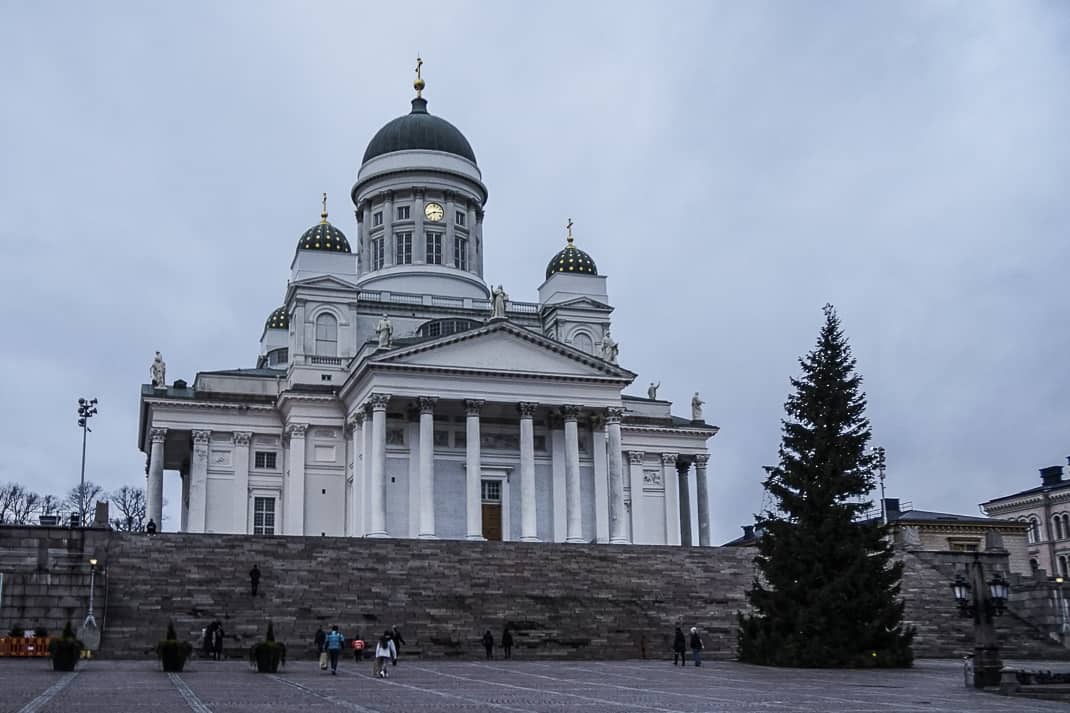
Seeking a Finnish passport
But if you live here, you get it back in the long run with free education, child care, health costs. Michael is so happy in Finland, he wants to give back to Finland. He’s seeking Finnish citizenship. Although the exam is in the Finnish language – “One of the hardest in the world,” he said – he can take it in Swedish, an easier language which he’s studying.
It would make traveling easier. He could get a job if he wanted. But those aren’t the real reasons he wants dual citizenship. What he said could just as well come out of my mouth, the mouth of a virtual expat, ex-American sportswriter twin.
“They let me live in this wonderful country and I want to honor the culture,” he said. “I’m the recipient of benefits and if I can earn a passport, it’s my way of saying, ‘Yeah, I want to be part of this.’ I really love the culture here. I love the people. This is a terrific place. I was kind of lucky to find it. I never dreamed I’d one day live in Helsinki, Finland.
“But here I am. And I never want to leave.”
If you would like to go …
How to get there: SAS has direct flights from New York to Helsinki in January starting at 433 euros round trip. In June, Finnair has flights starting at 747 euros.
Where to stay: Scandic Grand Central, Vilhonkatu 13, 358-300-308-401, Scandic Grand Central Helsinki | Hotel in Helsinki | Scandic Hotels, grandcentralhelsinki@scandihotels.com. An elegant four-star hotel built adjacent to Helsinki Central, one of the prettiest train stations in Europe. I paid 149 euros a night.
Where to eat: Lappi Ravintola, Annantatu 22, 358-964-5550, https://lappires.com/en, 4-10 Monday-Saturday. Traditional Finnish cuisine, main courses 24-39.50 euros.
When to go: July warmest month with average high of 71 and average low of 58. Coldest month is February at 28 and 19, respectively.
For more information: Helsinki Tourist Information, Kaivokatu 1, 35i-9310-3300, Tourist information | My Helsinki, helsinki.touristinfo@hel.fi, 9:30 a.m.-5:30 p.m. Monday-Friday, 10 a.m.-4 p.m. Saturday-Sunday.


December 28, 2021 @ 9:01 pm
Thanks for introducing us to Michael Hunt and Finland. Good people all around. And now, time for a Reindeer Tear!
December 28, 2021 @ 9:40 pm
I agree that Finland is a great country. I love it too. I could get Finnish citizenship because of my grandfather but I doubt that I could learn the language.
I don’t understand the US attitude about helping fellow citizens. Fortunately we have a good universal healthcare system in Australia too.
December 31, 2021 @ 8:16 pm
Maybe the reason those conservatives are faceless is that one can get fired or worse for expressing the wrong views. Some of us have to work for a living, didn’t have your luck of exiting a dying industry just in time.
You are the establishment John not the opposition, and have been so for the past 20 years remember that.
By the way, still supporting Biden? Be truthful.
December 31, 2021 @ 8:31 pm
And by the way, San Francisco’s GDP is double that of Finland’s and taxes are sky high so the difference isn’t money.
Perhaps San Francisco having had all Democratic mayors since 1964 might, just maybe, have something to do with it.
July 22, 2022 @ 8:41 pm
Taxes are way lower 😀 for instance with a salary of 70 000 euros you’d pay about 35% in taxes including all deductions. For 100k€ about 40%.
August 26, 2022 @ 4:44 pm
I’ve been in Finland going on 20 years and have had a similar experience. As much as I talk up Finland to my friends and family in the US, I can’t get people to visit even after offering to buy a ticket. Their loss.